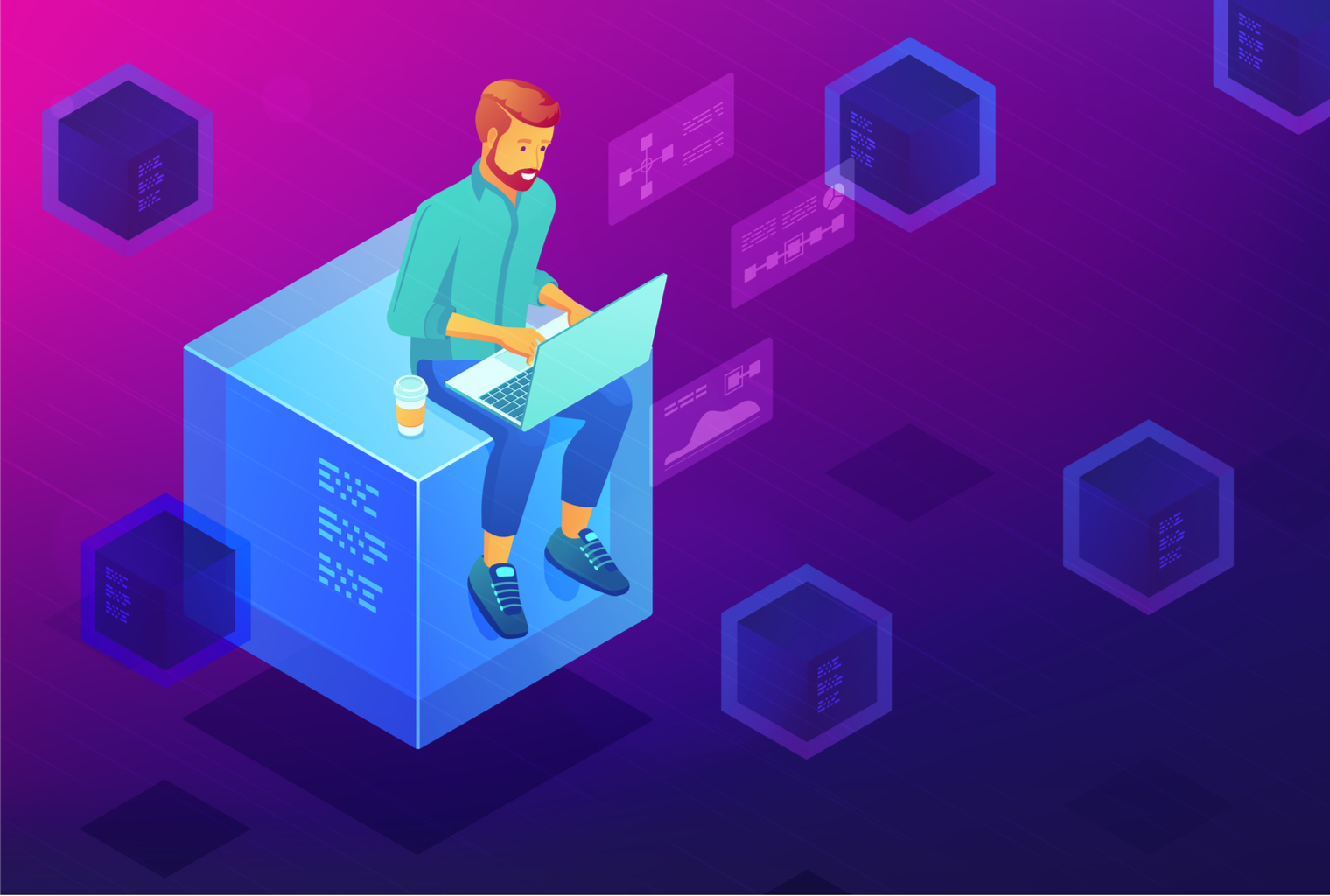Blockchain Developer Salaries: How Profitable Is This Job
Blockchain developer salaries are skyrocketing around the world as demand for blockchain experts and developers continues to rise. According to CNBC, blockchain developers can earn salaries equal to artificial intelligence (AI) developers, which is a lot of money!
Here are some salaries for blockchain developers in various parts of the world. Keep in mind that these estimates can vary depending on geographic region, firm size, spikes in demand, and other variables.
Blockchain developer salaries on different countries
- A blockchain developer's annual salary in India is over ₹460K
- A blockchain developer's annual salary in the US is over $96K
- A blockchain developer's annual salary in the UK is over £68,000
- A blockchain developer's annual salary in Singapore is around S$95,865
- A blockchain developer's annual salary in Canada is $95,000 CAD
- A blockchain developer's annual salary in Germany ranges from $60K to $150K
- A blockchain developer's annual salary in Switzerland is USD 180,000
Salary of a Blockchain Developer is Determined by Experience and Skills
Junior blockchain developers are often assigned more supportive or foundational tasks. Debugging and mending mobile apps, establishing blockchain database application programming interfaces (API), and even handling user interface (UI) design and front-end development of online and mobile applications are all examples of these activities. Consider them to be junior devs, interns, or helpers.
As a result, their salaries are on the lower end, however, even the starting salary is rather generous! A junior blockchain developer in the United States, for example, earns an annual average pay of $120,748 according to ZipRecruiter. A Blockchain developer, on the other hand, can earn more than $150K per year with the necessary competence and talents.
How to Become a Blockchain Developer
With a clear grasp of what a blockchain developer is, its role kinds, duties, and technical skill-set, we can now move on to the stages to become a blockchain developer.
Step 1: Learn basics
As with any other technology, you must begin with the fundamentals.
This comprises fundamental blockchain principles, ideas, and architecture. Learn about decentralization, its public and private approaches, the use of consensus in network decision-making, and other topics.
Also, by going through the blockchain dictionary, you will be able to understand the majority of the key ideas.
You should also be familiar with blockchain principles.
The fundamentals also include becoming acquainted with popular blockchain development tools. Aside from the technical issues, you need also to become acquainted with the market. Learn about initial coin offerings (ICOs) and cryptocurrencies.
Aside from that, immerse yourself in cryptography and ensure that you are familiar with all of the primary cryptographic algorithms utilized by prominent blockchain systems.
Finally, you should educate yourself on the blockchain ecosystem. Blockchain has expanded significantly in the last few years, as has its ecosystem. Learn about the following topics, and you'll be fine!
- Enterprise blockchain platforms
- Blockchain as a Service(BaaS) such as Hyperledger, Quorum, Corda and Ethereum Enterprise
- Learn about popular dApps
Step 2: Learn how the blockchain process works
After you've mastered the fundamentals, you'll need to become comfortable with real-world applications. It is easy to discover learners or developers who call themselves blockchain developers but haven't actually created anything.
To get started, you must first complete a trade of your choice. You will be able to appreciate what blockchain has to offer if you work through basic cryptocurrency.
Remember that cryptocurrency is only one application of blockchain. It is the first application of blockchain technology.
Even though we do not advise investing or trading, you should experiment with purchasing cryptocurrencies and holding it in an offline wallet.
You can grasp how bitcoin, one of the most important use-cases of blockchain, works by going through the entire process.
Wallets must be created in order to store the coins. They are digital and may be simply generated. But, do ensure that you know about private keys and its safety.
Step 3: Start coding — Learn from blockchain tutorials
Now that you have a solid theoretical and practical understanding of cryptocurrencies, it is time to get into coding.
Solidity is a good place to start for newcomers. It will assist you with the creation and development of dApps and smart contracts on the Ethereum network.
You might also wish to look at the open-source code of several blockchain platforms. Because the majority of blockchain platforms or solutions are open source, the code is easily accessible for scrutiny or learning.
Creating or maintaining an open-source blockchain, on the other hand, is a difficult task. It necessitates overcoming obstacles like as security, performance, resource management, and isolation.
In a nutshell, you must perform the following.
- Create a simple block
- Create a blockchain out of it
- Understand what is genesis block and implement it
- Adds the blocks to the blockchain
- Validate the chain
- Use it by doing test runs.
Step 4: Learn Smart Contracts
One of the most important blockchain ideas to understand is smart contracts. It is a computer protocol that is analogous to a legal contract in real life.
It can be used to automate or extend the functionality of your dApps. A smart contract must have three major characteristics: it must be deterministic, terminable, and isolated.
Step 5: Keep improving
There is no end to what can be learned. We recommend that you continue your education.
